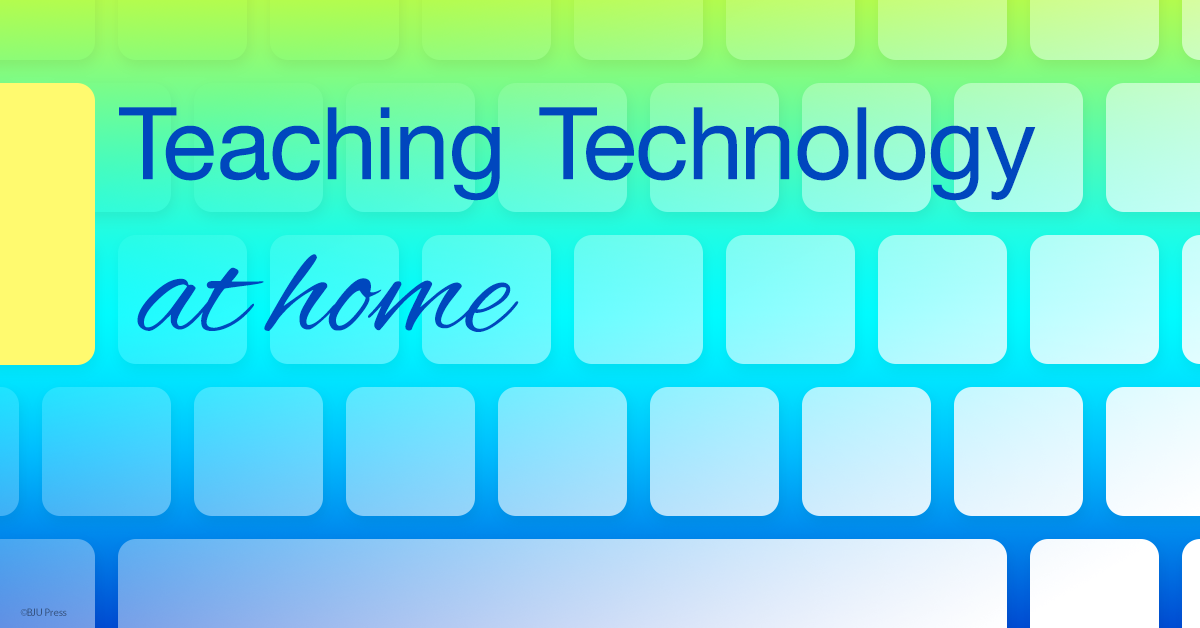
Technology skills are no longer optional; they’re a requirement for almost any job out there today. Many public and private schools are now incorporating classes on keyboarding, computer programming, web design, and so forth into their curriculum. Students who learn these skills at an early age are likely to catch on quickly, and this kind of know-how soon becomes second nature.
There’s no reason why homeschoolers can’t be on the cutting edge. Even without training, parents can teach their children the technology skills that will give them a major advantage in the future. Many of the available resources can make this an easy and fun learning experience for both parent and child. Here are a few key points to consider:
- Promote Creation over Consumption
We’ve all seen it—young children who get separation anxiety when they are not using a device to play games or interact with friends. When used incorrectly, technology can consume our lives, but that doesn’t mean it has no purpose. In Genesis 1:28, God commands humans to subdue and have dominion over the earth. He also commands us to love our neighbor as ourselves (Mark 12:31). When used correctly, technology is a tool that can help us work toward these goals.
One way to show children the true purpose and value of technology is to purchase devices and use software that focus on creating content rather than consuming it. I recommend choosing a device with a keyboard and mouse for a child as opposed to an iPad or tablet. These devices can be used to teach important skills such as coding, graphic design, word processing, and data entry. Children who have accessed only an iPad may have a difficult time transitioning to the types of devices they’ll be using as they move into college and the workforce.
- Keep Them Safe While They Learn
There are more threats online than ever before, and many parents rightly choose to limit their children’s access to technology for safety reasons. This is very important, but it’s also important to balance this with their need to learn. Most devices allow for supervised accounts that can restrict access to questionable content and riskier applications. Covenant Eyes® is one resource for internet accountability and filtering for families.
- You Can Do It!
Don’t fret if you’re a computer novice. Terms like computer programming and coding can seem scary and impossible to understand, but they don’t have to be. Many great (and free!) resources are available to help you and your child learn about technology. These tools often vary in difficulty based on your child’s age and relate coding and other computer-related tasks to fun characters children know and love.
Here are some outstanding resources to check out:
Code.org® is a nonprofit website dedicated to helping people of all ages learn to code. It offers lessons for younger children, including early readers.
Codecademy is a more advanced coding website for older children and adults.
Raspberry Pi Foundation is a nonprofit organization that sells small, inexpensive single-board computers that can be used in many different projects including homemade robotics. Their website contains a lot of ideas about fun projects that can be used to help children learn.
Chromebook™ notebook computers are ideal for children since they’re inexpensive and require little maintenance. They also make it easy to set up parental controls and feature a keyboard and touchpad for content creation. That’s why they’re quickly becoming the tool of choice for students across the country.
Have a favorite tool or experience about teaching technology in your homeschool? Share your story in the comments below!
Editor’s note: BJU Press is not endorsed, sponsored by or associated with any of the websites or organizations listed above.
Thanks for another good idea, Laurie. I didn’t list Khan Academy because I haven’t used their coding lessons personally. I have heard good things though.
Don’t forget Khan Academy. They are also an excellent free resource. It is where both of my older two started coding.